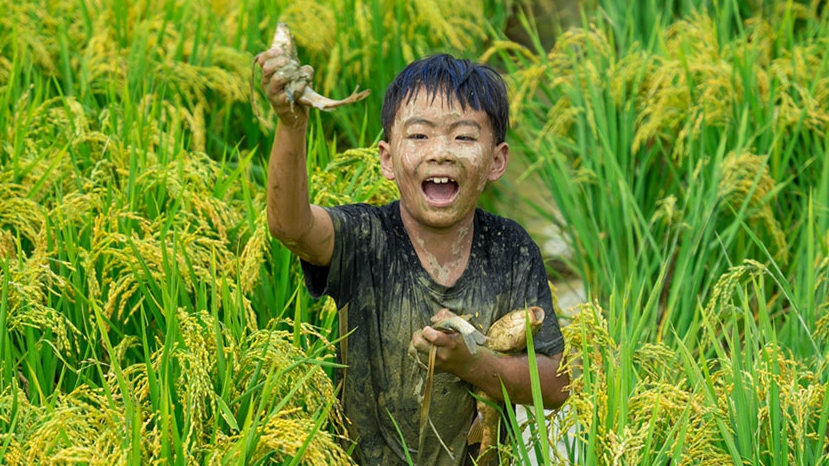SCO can boost Central Asia's progress

JIN DING/CHINA DAILY
With the strategic landscape of Central Asia undergoing drastic changes, promoting pragmatic cooperation has become a greater challenge for the Shanghai Cooperation Organization, which will hold its 2022 summit in Samarkand, Uzbekistan, on Thursday and Friday.
The situation in Central Asia is changing at a rapid pace because of the geopolitical games being played by Western powers, the lingering COVID-19 pandemic, environmental disasters, economic and social challenges, and growing uncertainties.
The geographic connection among the SCO member states is convenient for promoting trade and deepening cooperation in different fields. Since Central Asia is a transportation hub between Asia and Europe, it has been relatively easy for the SCO to build an open logistics system based on the region's large market and resource potential and merge it with that of wider Eurasia.
But since the SCO needs to clear the financial bottleneck and deepen overall cooperation, it should make efforts to encourage enterprises and local governments to take a more active part in cooperative activities that used to be led mainly by governments. For example, creating room for the development of middle and small-sized enterprises can help ease the mounting pressure of unemployment and inflation in the countries in the region.
The new version of the Program of Multilateral Trade and Economic Cooperation of the SCO Member States Up to 2035 was approved in 2019 and the "2021-25 Action Plan" for its implementation formulated cooperation measures in 13 areas, including digitalization, investment and finance, taking into consideration interest appeals, different levels of development of the countries and the single economic structure of some of the SCO member states.
The SCO is an open organization, but the inclusion of new members from other regions in the SCO has somewhat complicated the regional challenges and added to the agenda of the organization. Yet Central Asia remains at the core of the SCO's multilateral cooperation.
Over the past 30 years, Central Asian countries have encountered diverse problems, some of which can be solved only through the joint efforts and the help of neighboring big powers.
Therefore, Central Asian countries expect the SCO to help solve some of the difficult problems they face.
With the pandemic basically under control, Central Asian economies appeared to have made some recovery in 2021. Still, Kazakhstan, Uzbekistan and other countries are concerned on how to maintain recovery momentum because the region faces natural disasters and man-made problems created by non-regional powers.
While social differentiation continues to intensify in Central Asia, some social problems such as the serious divide between the rich and the poor, rising poverty rates, inflation and fiscal strains have worsened since the pandemic broke out, posing a growing challenge to the social security systems of Central Asian countries.
The extreme sanctions that the Western powers have imposed on Russia have had a negative impact on Central Asian countries, too, since they have close economic ties with Russia. Reduction in foreign investment, restrictions on imports and exports, and disruptions in the supply chains, which have led to food and energy shortages, are among the prominent negative impacts of the sanctions against Russia on the Central Asian countries.
In addition to the existing problems of terrorism, separatism and extremism, and drug-related crimes, the new security challenges facing the region include ecological and environmental protection, financing, and cybersecurity. Frequent natural disasters and uneven distribution of resources could also become major issues for the region.
Given the new developments, the SCO faces a challenge to evolve with the times. The original goal was to establish a close security community with deeper economic and cultural cooperation in order to boost economic development and improve people's livelihoods.
As the aim of the SCO is to address common problems of development, the organization, adhering to the Shanghai Spirit, should lay a solid political and economic foundation to build a new type of regional cooperation mechanism.
This year marks the 20th anniversary of the signing of the SCO Charter and the 15th anniversary of the Treaty on Long-term Good-Neighborliness. The organization has proved competent in helping maintain Central Asia's stability and supporting land-locked Central Asian countries to expand their areas of economic cooperation.
However, the SCO still needs to provide comprehensive support for the member states' economic recovery by helping boost their trade, agriculture and digital economy; improve their transportation networks; and ensure ample supply of energy to them.
The SCO members, on their part, should strengthen cooperation in industry and supply chains, and make full use of their economic complementarity to facilitate innovation and improve infrastructure.
Besides, enhancing cooperation in environmental protection, green development and poverty alleviation will help address many of the pressing problems faced by the Central Asian countries.
And the SCO members should more deeply integrate with the Belt and Road Initiative countries to boost their economic development and better protect their ecology and environment. This way the region can make better use of its favorable geographical location to pursue overall development.
The author is director of the Institute of Russian, Eastern European and Central Asian Studies at the Chinese Academy of Social Sciences.
The views don't necessarily represent those of China Daily.
Photos
Related Stories
Copyright © 2022 People's Daily Online. All Rights Reserved.









